French chefs are the kings to catch the stars put onto your pocket’s race. And as Michelin awards put French gastronomy under spotlights,it is time to have a long talk with one of its food magicians. Denis Fetisson is deeply in love with Provençale cuisine, he even released a book about it, the Season Product. His delicious path drove him from Marseille to Norway and on the road of some great chefs like Alain Ducasse, Yannick Alléno or Roger Verger in Mougins, he opened his two restaurants.
Time spending time around stoves may be over. Because head in diet cooking books might sometimes wipe out the wonderful way to greedy pleasure. Peeping out, numerous diverse restaurants pile up on the French Riviera coast. But among these nice top notch stops, Denis Fetisson overhangs the sea side from l’Amandier and la Place de Mougins, restaurant where we had a long chat about seasonal products, Mediterranean food, well French gastronomic lifestyle.
Denis Fetisson, thank you for meeting you in your restaurant.
Your career had a very local start, it was in les Chênes verts in Tourtour with your Godfather, Paul Bajade. What did you learn with him?
I was not so good at school so I decide to start to work quite young at 14 years old. I worked, firstly, as a waiter in my uncle’s restaurant. After the summer season, I told my uncle it was the job I wanted to do. He answered me: “Denis, if you want to become someone in the ‘restauration’, you have to become a cook because a chef is always the boss in a restaurant even if he’s not the owner.” So I start in September the cooking school in Marseille and I learnt in 2 years how hard (hours and physically) it is. I learnt in the hard way, my uncle was not so kind to me. He taught me also two very important things: how not to lose money in making food and to work with the local products.
Afterwards you did several very prestigious experiences like in the restaurant of Alain Ducasse in Monaco, in Yannick Aléno’s restaurant, among quite numerous experiences in France. Can you tell us about them?
After les Chênes Verts, I went to la belle Otéro in Cannes, beautiful restaurant located on the 7th floor of the Hotel Carlton. I learnt in two years a lot with the very creative chef Francis Chauveau and I’ve seen a lot of products cooked in a meridional way. At 20, it was party time at Courchevel, ski resort with a lot of fun but not too much sleep (laughing). After at Alain Ducasse’s restaurant, the Louis XV in Monaco, I admired the most beautiful products in Provence and in the Riviera I’ve ever seen in my life. At Moulin de Mougins, I meet an incredible man, Roger Verger with remarkable humanity. I still try now to teach this hospitality to my staff. I was still working at Hotel Daniel when I won the Champagne Jacquart competition and met Yannick Alléno, the godfather of this challenge. In 2008, he asked me to become a chef of his fantastic hotel Le Cheval Blanc in Courchevel! I learnt a lot of techniques and new products from this chef who was really into Japanese products. I took over the kitchen with 25 chefs and I win 2 Michelin stars in 2 years in this town where I met my wife and my partner.
“Voilà” the story!
But your chef C.V. is not only hexagonal because you had global experiences in Morocco, Mexico City or London. But in Norway you decided to spread a Mediterranean cuisine, how did you choose this Nordic place?
You know before Norway I couldn’t find a suitable job. Tristan Michelin, my former chef at Incognito restaurant in London offered a chef position to me in Norway because the current guy left, so I decided to take over. I was about 23 and I went there to make my Provencal cuisine because I’m from there, it’s my philosophy and my way of cooking. And I discovered that this area was magical for Norwegian People, I mean everything was: places, lifestyle, the cuisine, the myth they keep on mind … I set up my first company called “The Denis Fetisson Adventure”. The proposition was to take a group of 15 clients maximum with me in Provence, having them discover the market and how to cook local products. It was a big success, but 3 years later I felt like going back home. I missed some products, you could find beautiful lobsters, wonderful scallops, amazing langoustines, white prawn but you can’t get enough vegs you need for the Mediterranean cuisine. I did my best with the products I found but it went very well. Good memories from Norway.
With this experience did you feel like the ambassador of French Southern cuisine?
Yes, because I had to go out of the kitchen to take the orders, so I was always in contact with customers. I felt that they were very happy to meet a French guy in the middle of Norway, to receive lunch from him and to talk and share memories and Provencal experiences with him. I really felt like an ambassador of Provence.
Now you’re back in Provence. 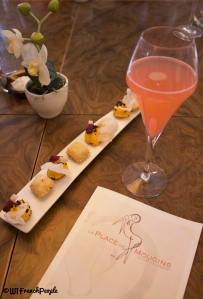 How do you feel like as a privileged person being there for years, not only during the festival of gastronomy in September, but during the whole year?
How do you feel like as a privileged person being there for years, not only during the festival of gastronomy in September, but during the whole year?
I do feel like a VIP here, for sure, I realized it every day! How lucky I am to get the beautiful restaurant in the middle of the village! I feel like I have a mission: it is to bring back gastronomy in the village because when I discovered this village 17 years ago it was a real gastronomic place. When I came back 6 years ago, I didn’t find anything from this prestigious past. “L’Amandier” was deceased, “Le Feu Follet” had a new owner and was in sharp decline, everything was going down and could just live thanks to a 10-year-old reputation. In my mind, I felt like I had the mission to bring back some good food to the center of the village and to continue the story started by Roger Verger, who was a model to me.
A book about your cuisine called “le produit à l’honneur” was released. It was based on the menu of the restaurant in a year and focusing on products of the month. How do you choose them?
We play with this from scratch. I chose to shock my guests, we wanted to be different. The concept of the product of the month is to choose one seasonal product and I create a menu from the appetizer to the dessert with the same product. I just pick the best product we can find in the best season. For instance, in November, it’s the White truffle d’Alba, in October it’s the scallops d’Erquy only when the season begins. December was hard to choose but I select chocolate because it’s the season when we love eating it. In January, the Black truffles start in December but the best months are the three next months. For March, the first asparagus appear on the market. Every month there is something new, the nature gives us the choice. Just need to take the right product and to cook it the right way. In the book, I relate how I discovered asparagus, cep mushrooms, it might sound trivial but behind each product, there is a story. Of course, it might be strange to create an eggplant mille feuille but since I traveled a lot and discovered a lot of products around the world, I mixed my view of cuisine to my experience for the writing of this book. It’s like a summary of my life.
In the book, you talk about product of course but also about producers in the market. How important is the market for a chef?
If you don’t go to the market, you don’t get inspiration. That’s it! If you’re lucky to have someone in front of you inspired by the product, then you would be more inspired by cooking. If you don’t go to the market, you don’t have the color for the plate. That’s all! If you don’t go to the market, you’re dead.
Cuisine is also a family business, your wife is working with you. Do you think cuisine is necessarily linked with meeting someone and sharing?
She is in charge of the restaurant: welcoming the guests and accountancy. Alone you can’t do anything, and if you are lucky to have a beautiful wife like I have to welcome the guests, that’s perfect. She has the sensibility, remembers the tastes and allergies of guests. To have a complete and successful restaurant, you need to be two. She’s also my second eye in the restaurant. It is very important to spread a harm atmosphere in the restaurant before the meals. It’s also the best solution because we have to spend some many hours working, this is also the best way to see my wife a bit… (smiling).
Is this way of taking time in welcoming and cooking part of the French lifestyle?
Of course, the way of welcoming guests, taking care of them and making good food is a job called “aubergiste” (meaning inn-keeper). This is 200-year-old work. It is part of our blood. We are still the b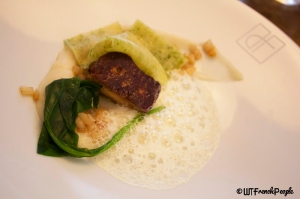 est for that. So we have to keep in mind it but not to let it go and not end up thinking that everything is done in France. This is an everyday’s job and fight: smiling, choosing, cooking, sharing. We have to keep this very good image to spread around the world and this secular cuisine.
est for that. So we have to keep in mind it but not to let it go and not end up thinking that everything is done in France. This is an everyday’s job and fight: smiling, choosing, cooking, sharing. We have to keep this very good image to spread around the world and this secular cuisine.
Bonus question: The book the French Paradox focusses on wine and oil, good for health and causing a live long life. Do you think French cuisine is a cure?
I think the way we live and eat everywhere in France, because every region has its own speciality, is part of our life, it’s not just putting some aliments in your mouth. It’s a family story, our history. And we take so much pleasure and time to go to the market, to make food, to sit and share with friends and family. If you respect this step, everyone can be like a French, physically. I think also, we eat three times a day, not more! A breakfast, one lunch, one dinner, that’s it. We are not really into drink beer after work, only one glass of wine and we’re done. People are more and more interested in our lifestyle, because they like it. I said glass, not a bottle.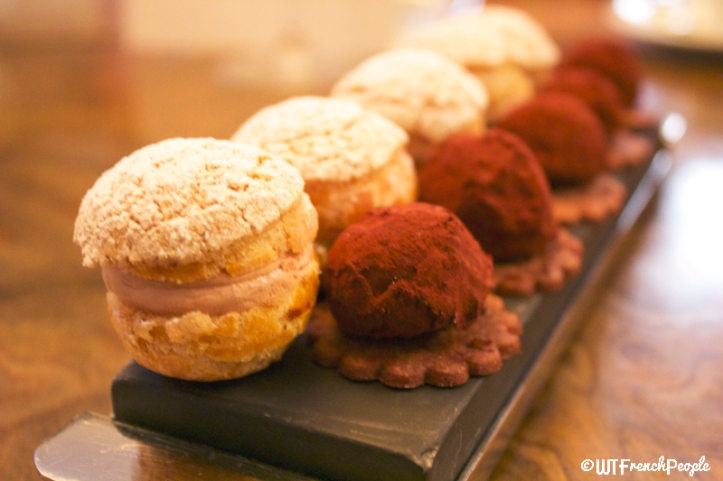


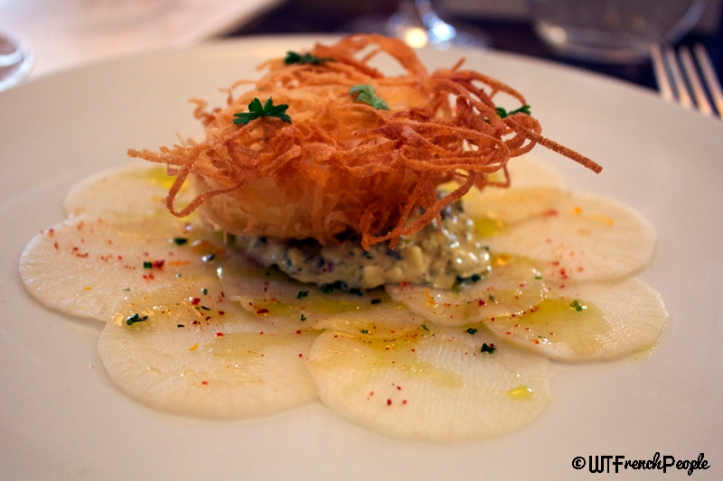
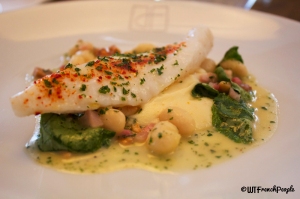
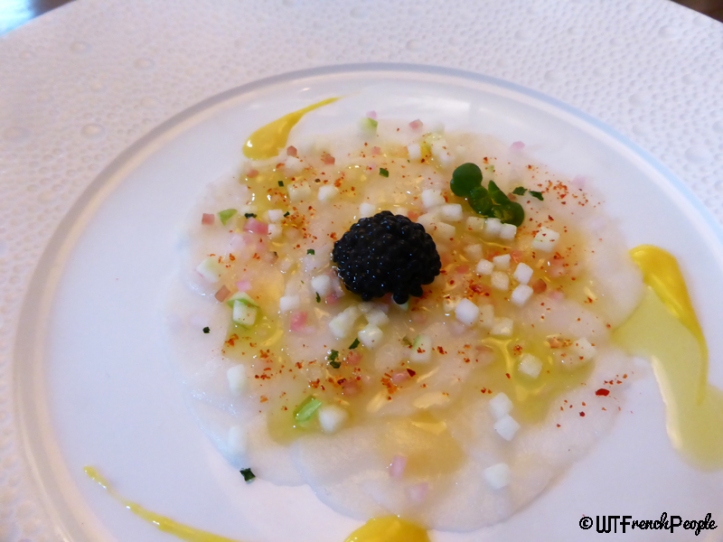
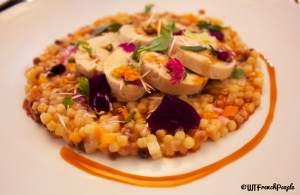
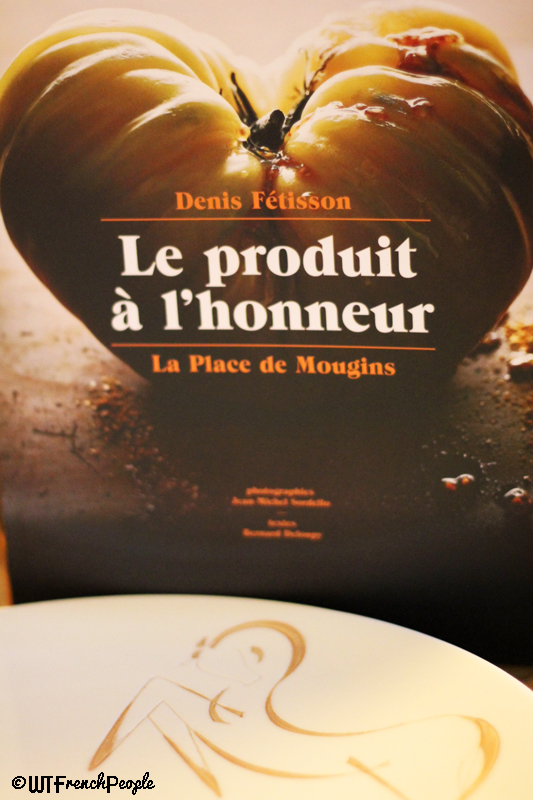
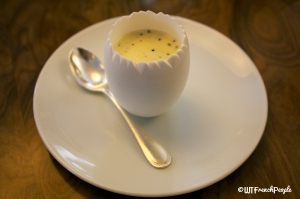
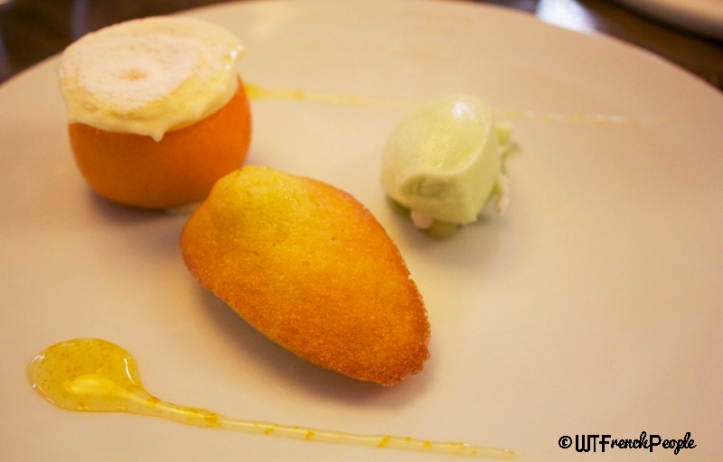



[…] snail look village. Their names? Giles Goujou, Daniel Boulud, Alain Ducasse, Jean François Piège, Denis Festisson […]
J’aimeJ’aime
[…] French generosity stands for food and liquid. But not for one. Each dish can come with one of the 4 alcohols. You mean 4 White wines or 4 beers? Well, not really. Les 110 de Taillevent doesn’t take things easily and can propose 1 sparking, one orange, one sake or one fortified wine. Wow. […]
J’aimeJ’aime